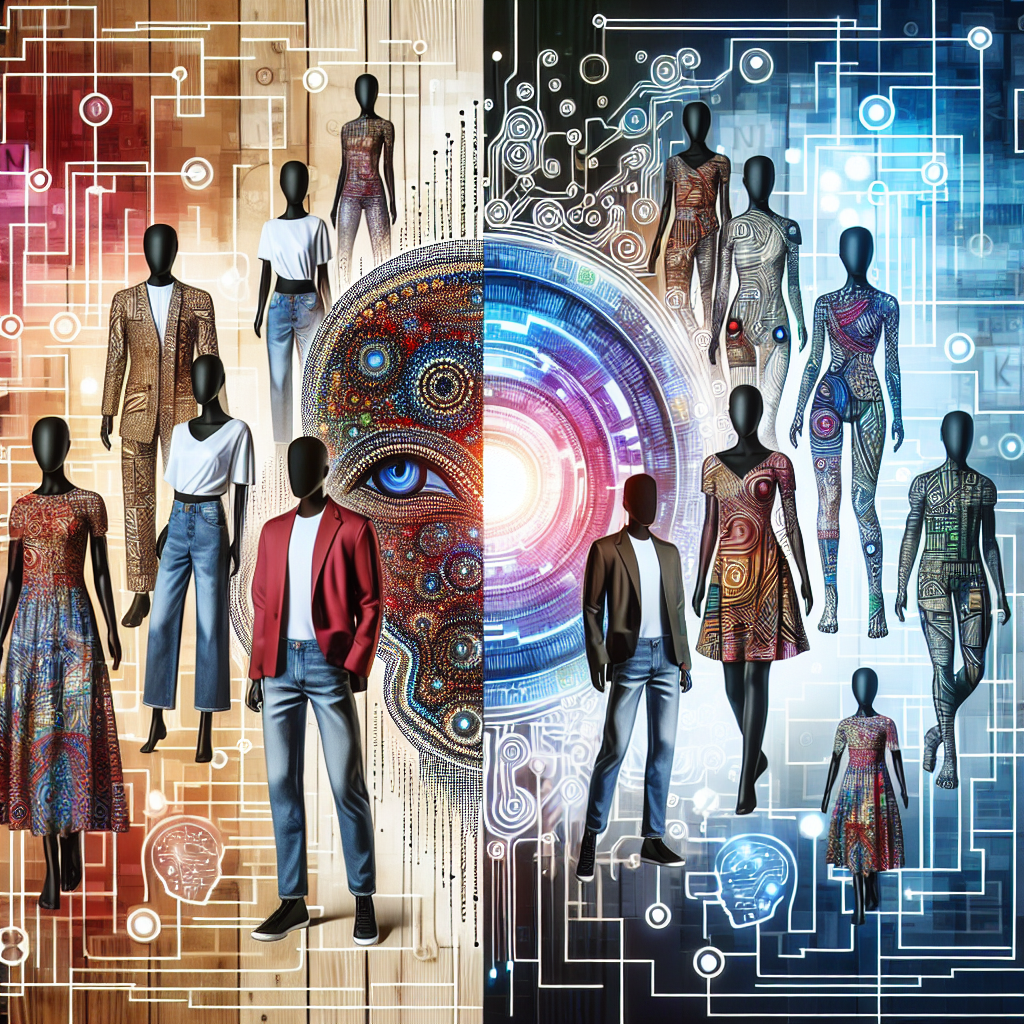As technology continues to advance at an unprecedented rate, the fashion industry is beginning to see the integration of artificial intelligence (AI) in various aspects of the design, production, and marketing processes. AI has the potential to revolutionize the way we think about fashion, from predicting trends to personalizing shopping experiences. In this article, we will explore the future of AI in fashion and what we can expect to see on the horizon.
AI in Fashion Design
One of the most exciting applications of AI in the fashion industry is in the realm of design. AI algorithms can analyze vast amounts of data, including social media trends, historical sales data, and even customer feedback, to identify emerging trends and predict what styles will be popular in the future. This can help designers create more targeted and successful collections, reducing the risk of producing items that won’t sell.
AI can also assist in the actual design process itself. Companies like IBM have developed AI systems that can generate new designs based on a set of parameters provided by the designer. This can help streamline the design process and spark creativity by offering new and unexpected ideas.
AI in Fashion Production
AI is also poised to revolutionize the production process in the fashion industry. One of the biggest challenges in fashion production is forecasting demand and ensuring that the right amount of inventory is produced. AI algorithms can analyze sales data in real-time to predict demand more accurately, allowing companies to produce the right amount of inventory and reduce waste.
AI can also be used to optimize the production process itself. By analyzing data on production efficiency and identifying bottlenecks in the supply chain, AI algorithms can help companies streamline their operations and reduce costs.
AI in Fashion Marketing
AI is already being used in fashion marketing to personalize the shopping experience for customers. By analyzing data on a customer’s browsing and purchasing history, AI algorithms can recommend products that are likely to be of interest to that customer. This can help increase sales and improve customer satisfaction by offering a more personalized shopping experience.
AI can also be used to optimize marketing campaigns by analyzing data on customer preferences and behavior. By targeting the right audience with the right message at the right time, companies can increase the effectiveness of their marketing efforts and drive more sales.
The Future of AI in Fashion
As AI continues to advance, we can expect to see even more exciting applications of this technology in the fashion industry. Some potential future developments include:
– Virtual fitting rooms: AI algorithms can analyze a customer’s body measurements and suggest the best size and fit for a particular garment. Virtual fitting rooms can also show customers how a garment will look on them before they make a purchase, reducing the likelihood of returns.
– Sustainable fashion: AI can help companies optimize their production processes to reduce waste and minimize their environmental impact. By analyzing data on material usage and production efficiency, AI algorithms can help companies make more sustainable choices in their design and production processes.
– Customization: AI can help companies offer more personalized products to customers by analyzing data on their preferences and creating custom designs. Companies like Adidas have already started offering customized sneakers using AI algorithms to create unique designs for each customer.
FAQs
Q: Will AI replace human designers in the fashion industry?
A: While AI can assist designers in the design process, it is unlikely to completely replace human designers. AI can help designers generate ideas and streamline the design process, but human creativity and intuition are still essential in creating innovative and unique designs.
Q: How can AI help companies reduce waste in the fashion industry?
A: AI algorithms can analyze data on production efficiency and material usage to identify ways to reduce waste in the production process. By optimizing production processes and making more sustainable choices, companies can minimize their environmental impact and reduce waste.
Q: How can AI help companies personalize the shopping experience for customers?
A: AI algorithms can analyze data on a customer’s browsing and purchasing history to recommend products that are likely to be of interest to that customer. By offering personalized recommendations and virtual fitting rooms, companies can create a more tailored shopping experience for customers.
In conclusion, the future of AI in fashion is bright and full of exciting possibilities. From predicting trends to optimizing production processes, AI has the potential to revolutionize the way we think about fashion. By embracing this technology and exploring new and innovative applications, the fashion industry can continue to evolve and thrive in the digital age.

